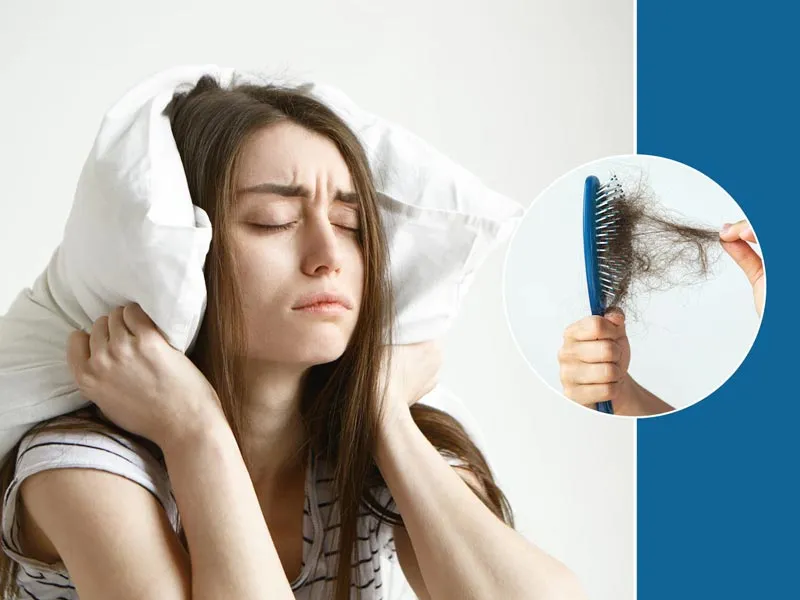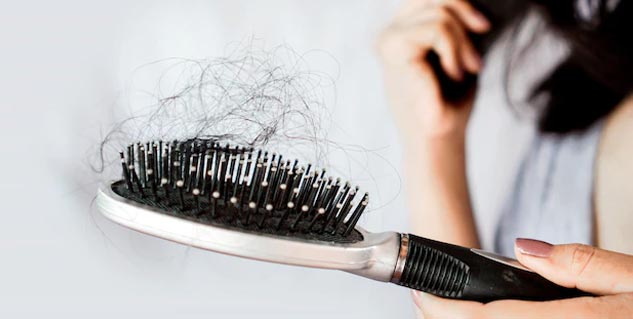
When you experience hair loss, it is often attributed to genetics, stress, and lack of proper nutrition, but in an exclusive interaction with the editorial team of Onlymyhealth, a dermatologist explained that it might be because of your sleepless nights too. Dr Sanjeev Gulati, Dermatologist, Department of Dermatology, Sharda Hospital - Noida, said that not only does sleep keep your brain and body in top shape, but it also plays an important role in the health of your hair.
Table of Content:-
Here is a closer look at the science behind the link between lack of sleep, hair loss, and what Dr Gulati shared with us.
Science Behind Sleep and Hair Growth
Our hair also cycles from growth (anagen), transition (catagen), and rest (telogen) stages. For this cycle to proceed with ease, our body requires appropriate rest and recovery. It is during sleep that our body repairs tissues, maintains hormonal balance, and increases blood flow, all of which are important for healthy hair follicles.
When the sleep is interfered with, these processes get unsettled. Lowered blood flow implies roots of hair lack proper nutrients, and hormonal imbalances can cause follicles to enter the shedding phase too early.

Hormonal Disruption That Leads To Hair Loss
Sleep deprivation can raise the cortisol, which is the stress hormone and is well known to cause hair loss. Elevated cortisol, apart from making hair follicles weaker, also disrupts other hormones such as melatonin and growth hormone, both of which are essential for cell repair and hair growth.
Melatonin, also referred to as the sleep hormone, also affects hair growth. Research has indicated that melatonin levels lower than normal correlate with slower hair growth and reduced hair.
Stress, Sleep, and the Hair Connection
“Sleep deprivation and stress often go hand in hand. Stress-related conditions such as telogen effluvium, where large numbers of hairs enter the shedding phase, can be worsened by chronic sleep loss,” Dr Gulati pointed out. This suggests that you’ve been noticing more hair strands on your pillow or in the shower, poor sleep habits might be a contributing factor.
Other Ways Sleep Affects Hair Health
A few other factors that contribute to hair loss include:
- Weaker immunity: Sleep makes your immune system stronger. Inadequate sleep can promote inflammation, which occasionally targets hair follicles.
- Slower recovery: Inadequate rest weakens your body's capacity to repair and rejuvenate cells, including those in your scalp.
- Nutrient imbalance: Sleep deprivation impacts hunger-regulating hormones, which can result in inadequate diet and nutrient deficiencies affecting hair growth.
How to Protect Your Hair by Improving Sleep
If you think your hair health is being impacted by your sleep patterns, here are a few expert-approved suggestions:
- Maintain a regular sleeping routine.
- Establish a soothing pre-sleep routine (avoid screens, use reading or meditation).
- Make your sleeping space cool, dark, and cozy.
- Steer clear of caffeine in the evening.
- Work through underlying stress via exercise, mindfulness, or therapy.
Bottomline
Though sleep deprivation will not necessarily be the only reason for hair loss, it can certainly exacerbate shedding by derailing hormonal equilibrium, stress levels, and cellular renewal. A focus on proper sleep habits not only improves your overall health but might even keep you sporting a thicker, healthier head of hair.
Also watch this video
Read Next
Direct Hair Transplantation (DHT): An Innovative Technology Changing the Game in Hair Restoration
How we keep this article up to date:
We work with experts and keep a close eye on the latest in health and wellness. Whenever there is a new research or helpful information, we update our articles with accurate and useful advice.
Current Version